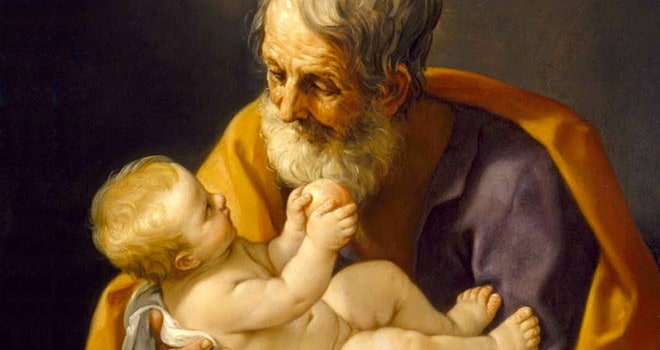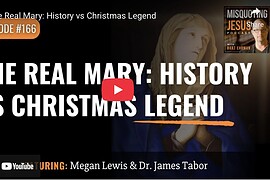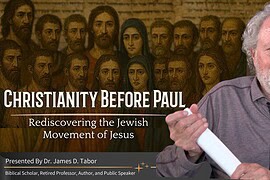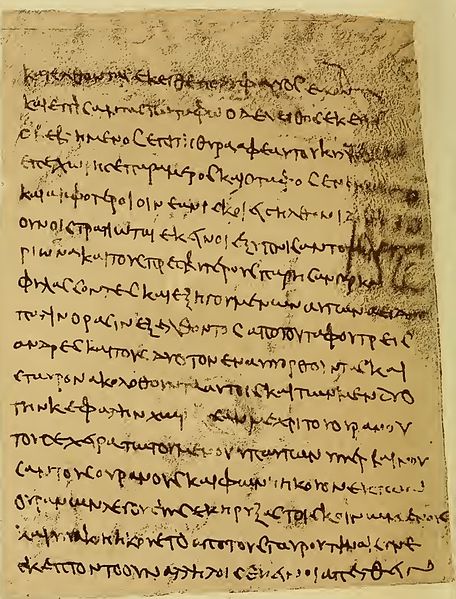One of the most intriguing subjects in our New Testament Gospels is the near silence about Joseph, husband of Mary. If one reads the Gospels in the order in which we think they were written, that is Mark first, then Matthew, then Luke, then John, the case for Joseph gone missing is even more obvious. It is very helpful to just set forth what is said about Joseph in each Gospel, as all of us as readers of the Bible tend to conflate and combine the various accounts in our memory. Let’s begin with Mark.

Mark
Mark contains no record of the birth of Jesus whatsoever. His narrative begins with Jesus as an adult going to the Jordan River to be baptised by John. In the entire Gospel of Mark we have only this line:
Mark 6:3 “Is not this the carpenter, the son of Mary”
This is the famous scene when Jesus comes back to his hometown Nazareth and the locals question him for what he has been doing.
It would be difficult to overemphasize the “silence” here and what it implies about the birth of Jesus.
Joseph is never named and no father of Jesus is alluded to at all–whether human or divine.
With no father named or even alluded to, the birth not even mentioned, and Jesus simply called the “son of Mary,” we seem to have the bare facts that hint of some kind of irregularity in terms of the paternity of Jesus.
Matthew
Matthew does have a “birth story” in which he relates the pregnant Mary, is taken nonetheless as wife by her betrothed husband to be, Joseph.
Matt. 1:18 Now the birth of Jesus Christ was like this : When his mother Mary had been betrothed to Joseph, before they came together she was found with child of the Holy Spirit. [v. 24b-25] And Joseph . . . took unto him his wife; and knew her not till she had brought forth a son: and he called his name Jesus.
Then the ONLY other reference to Joseph is as “the carpenter,” but he is not named, in the rejection at Nazareth scene.
Matt. 13:55 Is not this the carpenter’s son? is not his mother called Mary?
Joseph never shows up again.
Luke
Like Matthew Luke includes a “birth story” in which Joseph is named as Mary’s fiancee. Their marriage is not mentioned but perhaps can be assumed to have followed the birth of Jesus:
Luke 1: 26-27 …the angel Gabriel was sent from God unto a city of Galilee, named Nazareth,
to a virgin betrothed to a man whose name was Joseph, of the house of David; and the virgin’s name was Mary.
Luke 2:4-5 And Joseph also went up from Galilee, out of the city of Nazareth, into Judaea, to the city of David, which is called Bethlehem, because he was of the house and family of David; to enroll himself with Mary, who was betrothed to him, being great with child.
Luke also gives us a genealogy in which he says Jesus was the son of Joseph as was supposed, clearly wanting to make it clear that Joseph was not the father. He then mentions Joseph, but not by name, in the story of Jesus at age 12 traveling to Jerusalem for Passover with his parents:
Luke 2:41, 48 Now every year his parents when to Jerusalem for the festival of the Passover. And when he was twelve years old they went up as usual for the festival…Your father and I have been searching for you in great anxiety…[Jesus] Why? Did you not know I must be in my Father’s house.
Like Mark and Matthew he has the scene at Nazareth where Jesus is rejected, and he is called “Joseph’s son.”
Luke 4:16, 22 When he came to Nazareth, where he had been brought up, he went to the synagogue on the Sabbath day…and they said, Is not this Joseph’s son?
No more references to Joseph
John
Finally in John there is no birth account, and two references to Jesus as “son of Joseph,” one by Nathanael, which seems to function in John as a prelude to the grand confession in 1:49; and again when some listeners began to question his right to Messianic claims since his common origins are well known:
John 1:44 We have found him about whom Moses in the law and also the prophets wrote, “Jesus son of Joseph from Nazareth.”
John 6:42 And they said, Is not this Jesus, the son of Joseph, whose father and mother we know?
That is it, no other references to Joseph whatsoever and with no birth account.
This kind of evidence surely demands some kind of verdict. It is startling and noteworthy. Other than the scene at Nazareth that Mark records (and Matthew and Luke repeats, and John echoes) we have Joseph mentioned by name only in the two birth stories. Joseph is either ignored totally (Mark and John) or disappears from the scene so early on with no part in the Jesus story at all. Various scattered references to Jesus’ “mother and his brothers” seems to reinforce the view that Joseph has most likely died (Mark 3:32; John 2:12; Acts 1:14).
In my book, The Jesus Dynasty I offer a couple of theories that build upon this phenomenon of the missing Joseph, including this common idea that Joseph died early on and was “replaced” by his brother Clophas/Alphaeus, who took Mary to wife based on the tradition of the Levirite marriage in which a brother of a man who dies childless marries the widow and has a child to represent the deceased brother (Deuteronomy 25:5-10). This is only a theory and it may or may not be the case, but it does seem to satisfy some of the evidence we have regarding the references to “Mary wife of Clophas” and references to her sons James and Yose, as well as James the apostle being called a “son of Alphaeus.” For a summary of this possibility see my post “Sorting out the Jesus Family.”
In the end we are left very much with the mystery of the missing Joseph and laying out the texts in this fashion I think really helps to pinpoint the problem in terms of evidence and data. I think that many Christians just assume that Joseph must loom large in the New Testament gospels based on the place of honor he is given in Christian tradition. In truth though, the silence seems to me to be indicative of something very irregular about the birth of Jesus and the paternity of the seven children that Mary bore. This stands out in a particularly stark way if we begin first with Mark, as our earliest record, and realize the only thing Mark implies about Jesus’ birth at all is the designation of the local townsfolk in Nazareth–“Is this not the carpenter, the son of Mary?” As with Mark’s account of the empty tomb with no appearances of Jesus (see “The Strange Ending of Mark“) we have to imagine a pre-70 CE community of early Jesus’ followers who have no tradition as to the identity of Jesus father. This is indeed what Mark reflects.









Comments are closed.